
What is a polyurethane coating? Silicone Rubber Membrane Switch
What is a polyurethane coating? Silicone Rubber Membrane Switch
Polyurethane coating is a protective coating with properties such as moisture resistance, chemical resistance, dielectric properties and wear resistance, and is widely used to protect electronic products from environmental influences.
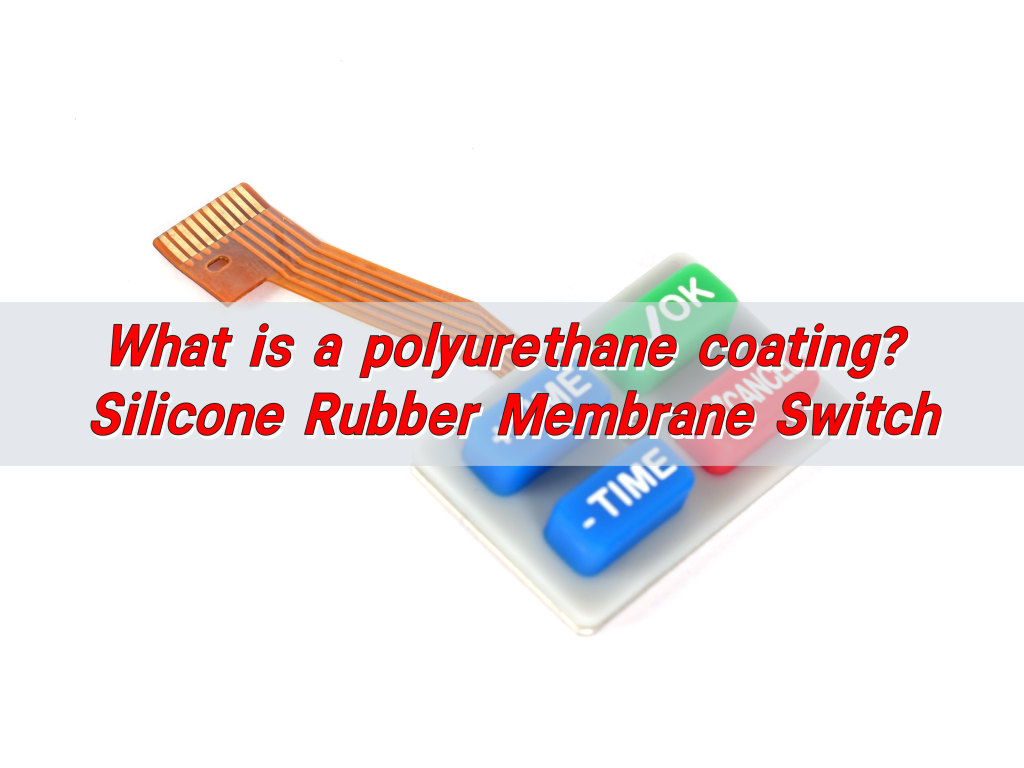
In silicone rubber membrane switches, polyurethane coating ensures the stability and reliability of the switch in harsh environments by providing moisture resistance, chemical resistance and electrical insulation properties, while enhancing its wear resistance and tactile feedback.
What is a pu coating for membrane switches?
Polyurethane coating is a flexible, clear or tinted layer applied over surfaces like silicone rubber membrane switches or rubber keypads. It acts as a shield. Not just a visual upgrade—but real protection. It covers the exposed parts and defends against damage from chemicals, UV, moisture, and abrasion.
Think of it as armor, but much lighter and nearly invisible. It doesn’t interfere with the function of the switch. Instead, it enhances its resilience. Membrane switches with polyurethane coatings last longer, feel better, and look more professional.
Silicone rubber keypads, in particular, benefit hugely. With a PU coating, they stay smooth, repel dirt, and resist fading even after thousands of presses.
Is polyurethane coating waterproof?
Absolutely, yes. One of the biggest advantages of polyurethane is its waterproof nature. When applied correctly, it forms a sealed layer. Water can’t seep through. That’s why polyurethane coating waterproof properties are highly valued.
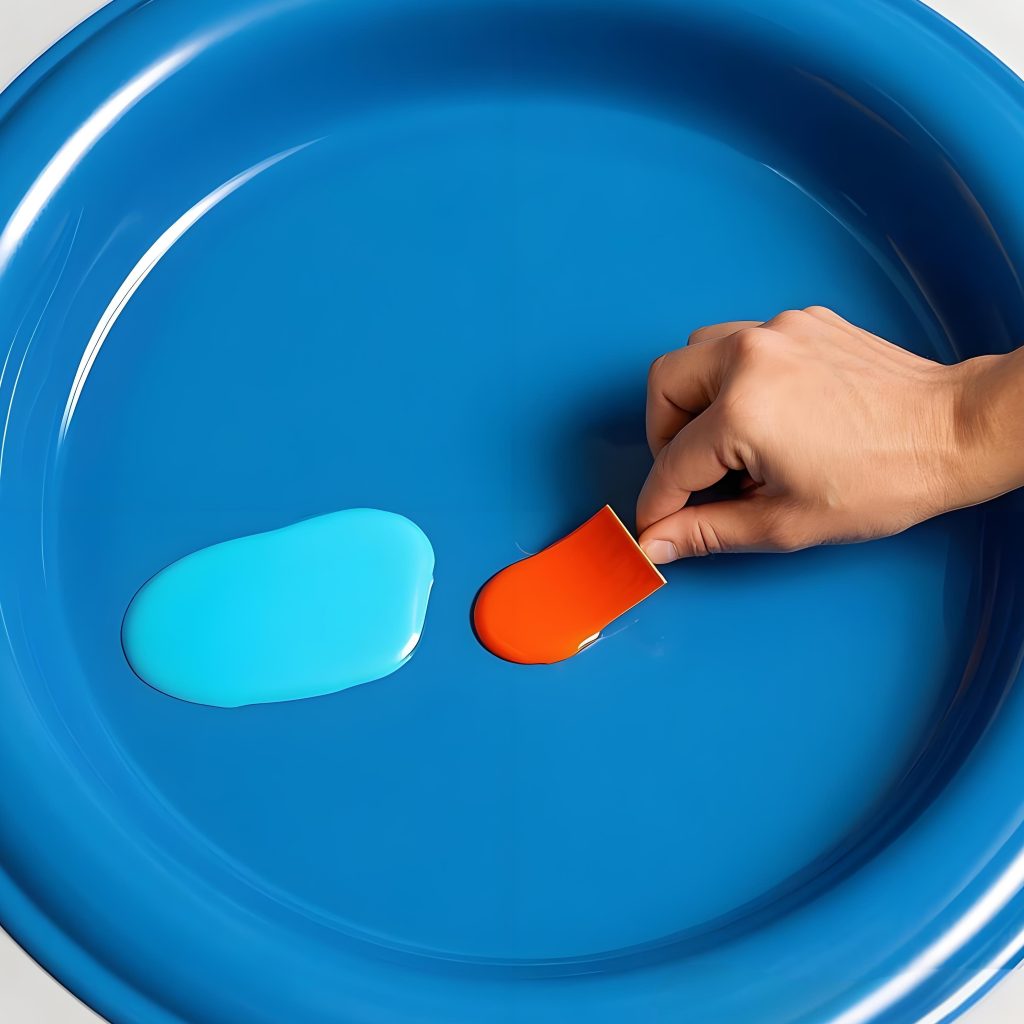
Whether your membrane switch is used outdoors, in medical equipment, or in industrial panels—PU coatings create a barrier. This barrier protects against humidity, splashes, and even full submersion for a limited time.
Does polyurethane coating wear off?
Like anything else, polyurethane isn’t immortal—but it’s built to last. With proper formulation and thickness, PU coatings hold strong for years. Normal use won’t make it peel or crack easily.
Yes, it can wear off eventually, especially if the switch is exposed to extreme heat, UV rays, or aggressive chemicals. But that takes time. In most industrial or commercial applications, a high-quality polyurethane coating will outlast the product it’s protecting.
So, while the coating can wear off under abuse, under normal use it stays put. It holds up against scratches, oils, and constant finger pressure. And if needed, it can be reapplied.
Is polyurethane coating safe?
When fully cured, polyurethane coatings are non-toxic and safe to touch. That’s why they’re used on consumer electronics, toys, and medical tools.
The liquid form before curing can be hazardous if inhaled. But once applied and hardened, the danger is gone. In membrane switch manufacturing, all safety protocols are followed. The coating is applied in a controlled environment and cured thoroughly.
How long does polyurethane coating last?
Here’s the great news: polyurethane coatings are long-lasting. On rubber keypads or membrane switches, they can maintain their performance for 5–10 years or more.
The longevity depends on how the switch is used. The more intense the environment, the faster it may age. But in controlled or indoor settings, PU coatings stay effective for a decade or longer.
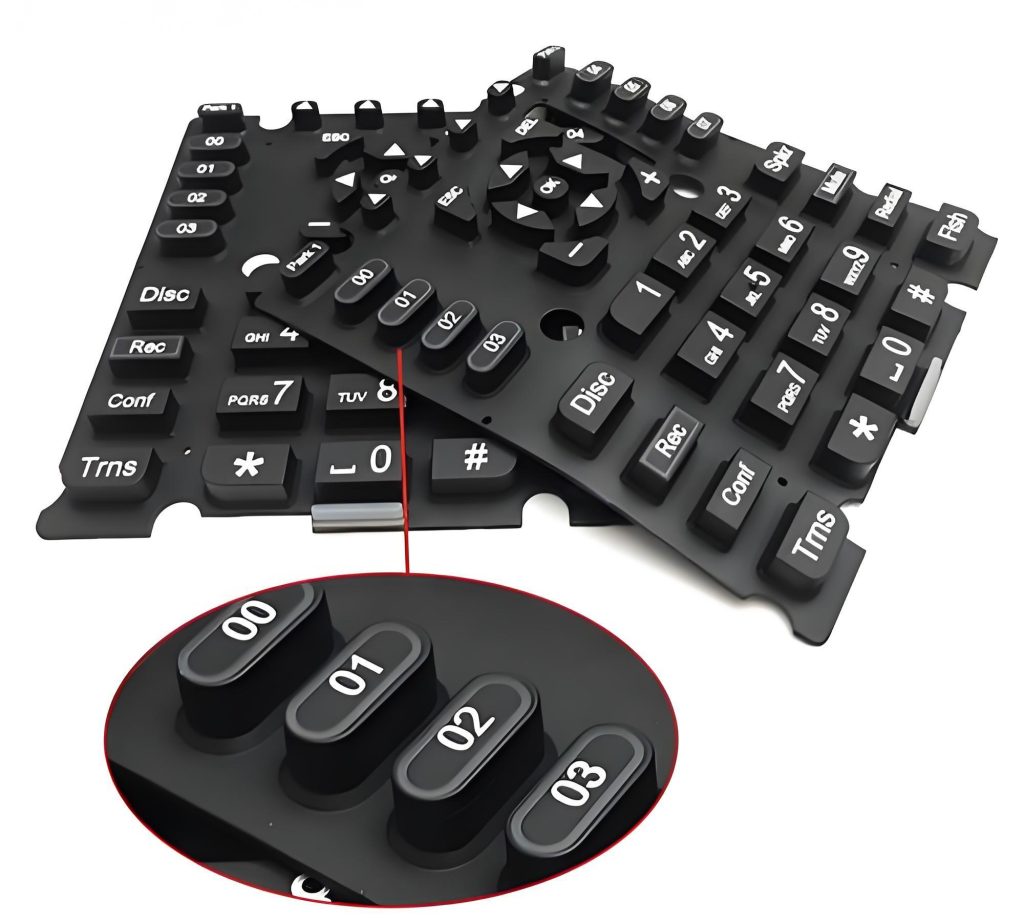
That’s why polyurethane coating for metal, plastic, or rubber parts is widely used. It delivers years of reliable protection.
What are the disadvantages of using polyurethane?
The main drawback is the application process. It needs a precise environment. Poor curing can lead to sticky surfaces or bubbles. That’s why experienced manufacturers are essential.
Another issue is yellowing. Some PU coatings may yellow over time when exposed to UV light. However, modern formulas are UV-resistant and stay clear much longer.
Finally, removal isn’t easy. Once cured, polyurethane is tough to strip off without damaging the base material. That’s also a sign of how strong it is.
Despite these points, the benefits far outweigh the downsides for most users. With proper handling, polyurethane delivers exceptional results.
What are the uses of polyurethane coatings?
Polyurethane is everywhere. It’s one of the most versatile coatings in the electronics and industrial world. Here are just a few standout applications:
- Membrane switches coating: Protects rubber domes, enhances tactile feedback, and improves resistance.
- Rubber keypads: Keeps the surface smooth, reduces wear, and increases lifespan.
- Polyurethane coating for metal: Prevents rust, corrosion, and damage on exposed hardware.
- Consumer electronics: Adds gloss, scratch resistance, and visual appeal.
- Automotive panels: Shields against UV and maintains surface texture.
- Medical equipment: Easy to clean, resistant to harsh disinfectants, and gentle to touch.
From home appliances to aerospace systems, polyurethane coating application is essential wherever reliability is a must.
Why should polyurethane coating be used for membrane switches?
Polyurethane is not just a coating—it’s an upgrade. It gives your product a longer life. It keeps your membrane switches looking new and functioning perfectly.
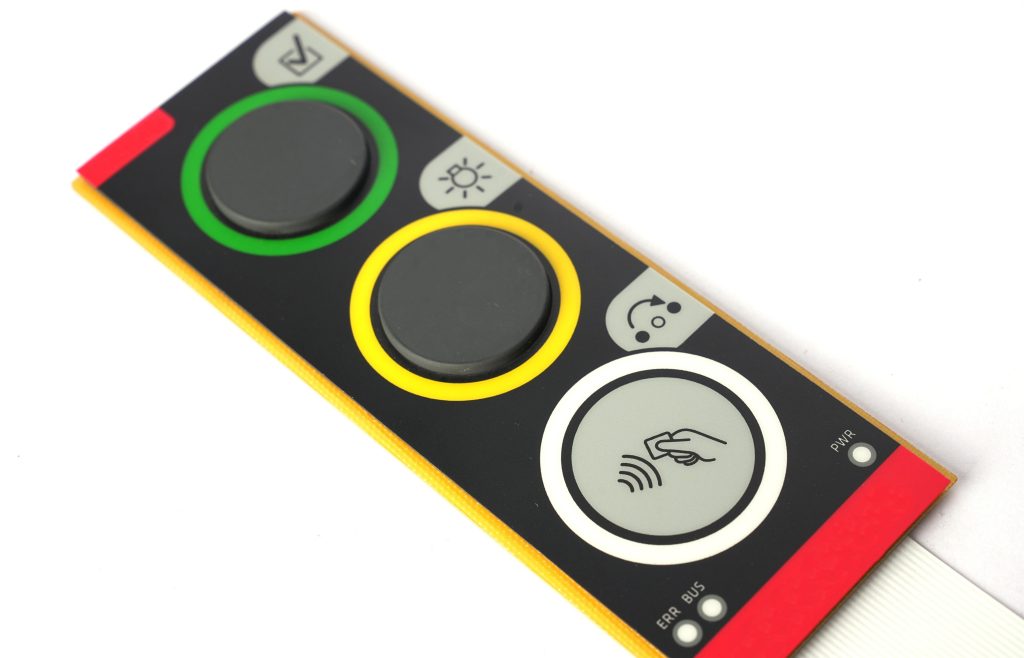
For end-users, it means smoother touch, better durability, and a product that feels premium. And here’s something powerful: polyurethane doesn’t just protect. It enhances. It makes every press feel smoother. Every click more satisfying.
Conclusion:
With its waterproof power, long lifespan, and incredible versatility, polyurethane deserves its place in the spotlight. Membrane switches coated with polyurethane don’t just survive—they thrive. Want to learn more or need help sourcing high-quality rubber keypads or PU-coated switches? Reach out to us at sales@best-membraneswitch.com
Silicone Keypad Manufacturers: All About Silicone Buttons
Silicone keypad is a keypad made of silicone rubber material, which is soft, elastic and durable. It has good waterproof, dustproof and chemical corrosion resistance, suitable for use in harsh environments. Yu An Electronics specializes in the production of silicone keypads, which have excellent insulation and circuit conduction properties. During the molding process, the silicone ...
Mistakes to Avoid When You Order PCB Membrane Switches
It is a fantastic strategy to ensure the inventory when you run a business that needs membrane switches and pcb units. The priority should be to choose a reliable seller from the competitive industry. There are some errors that you should avoid. Here is a glimpse. Rushing through the order process There is no need ...
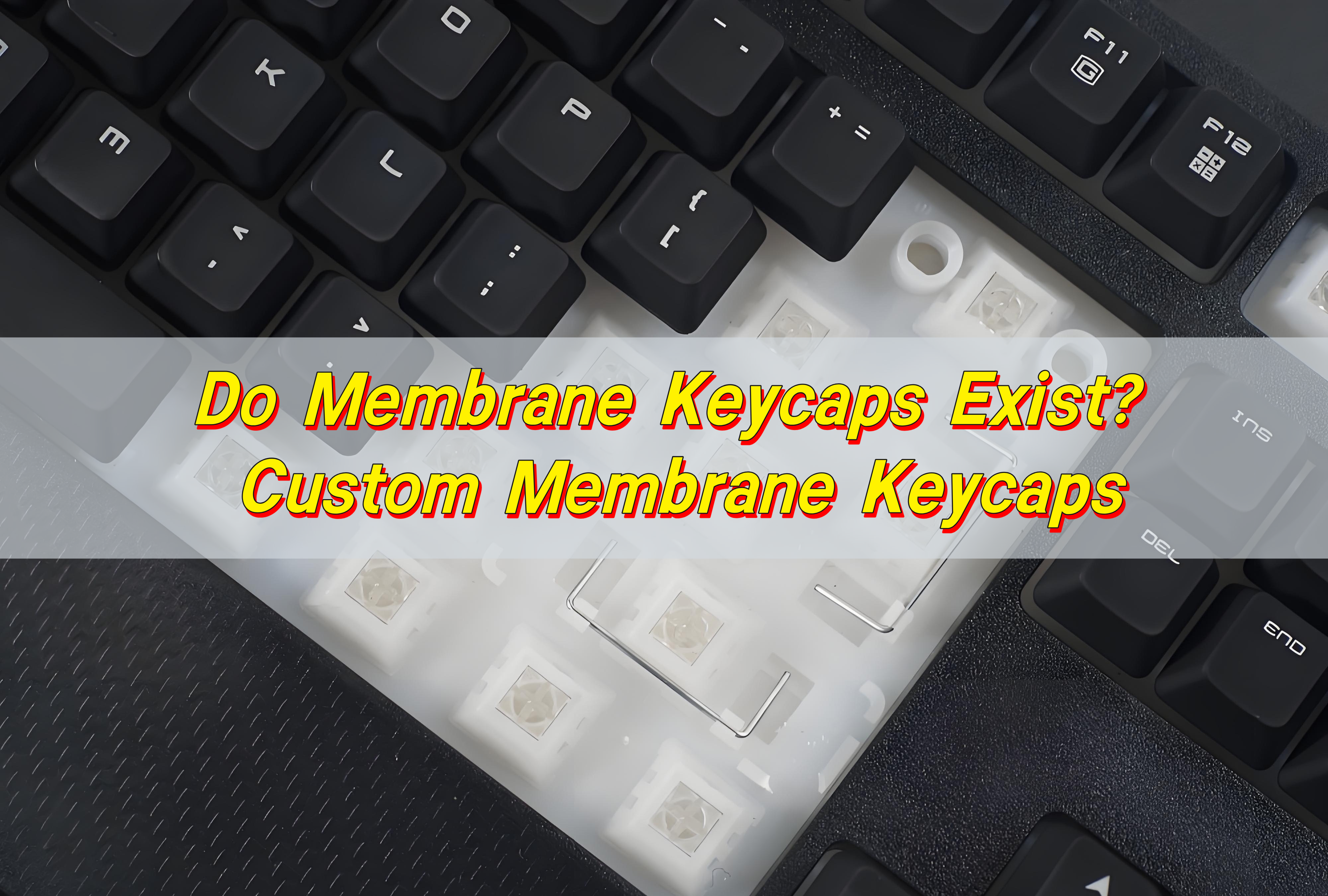
Do Membrane Keycaps Exist? Custom Membrane Keycaps
Membrane keycaps are an important part of membrane keyboards. They are usually fixed to the keyboard base by snaps or screws and can be replaced. Custom membrane keycaps can be selected from different materials, colors and patterns according to personal preferences, providing users with a way to personalize their keyboards. Are there keycaps for membrane ...
Contact us online